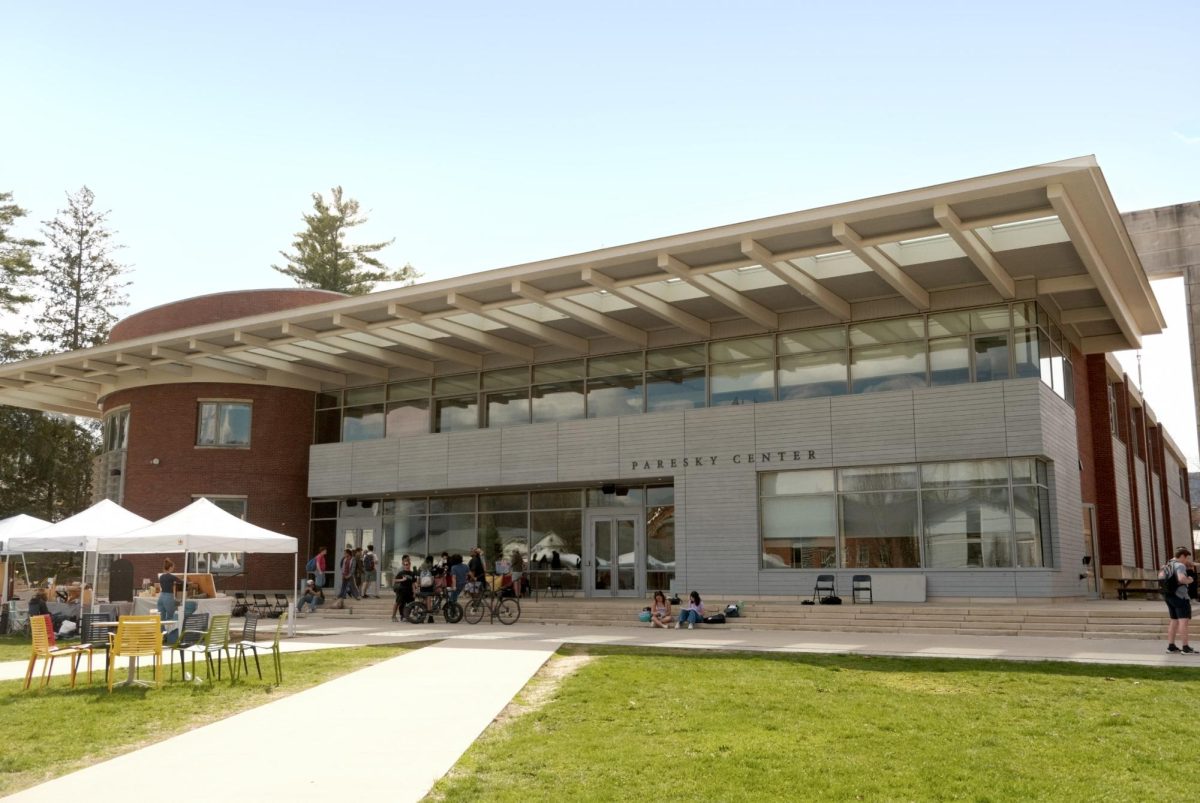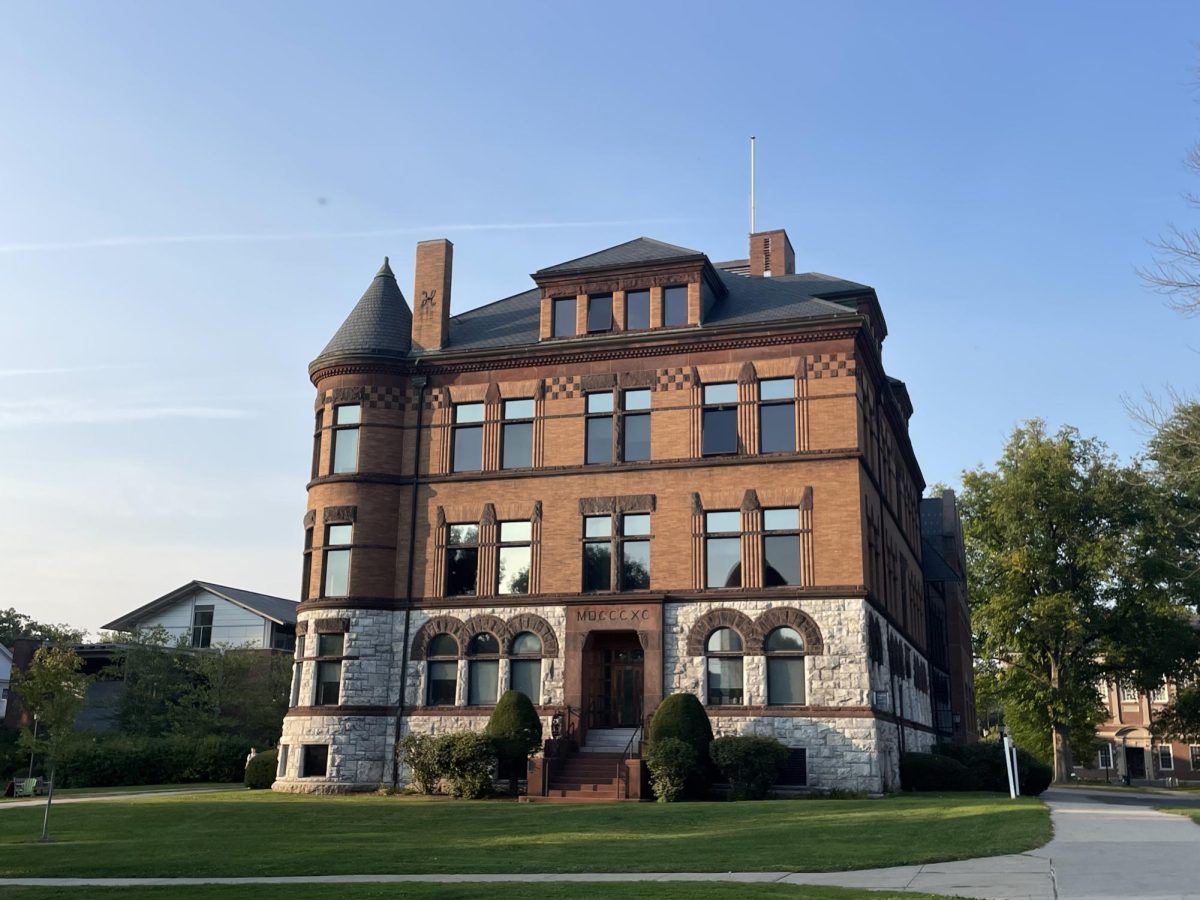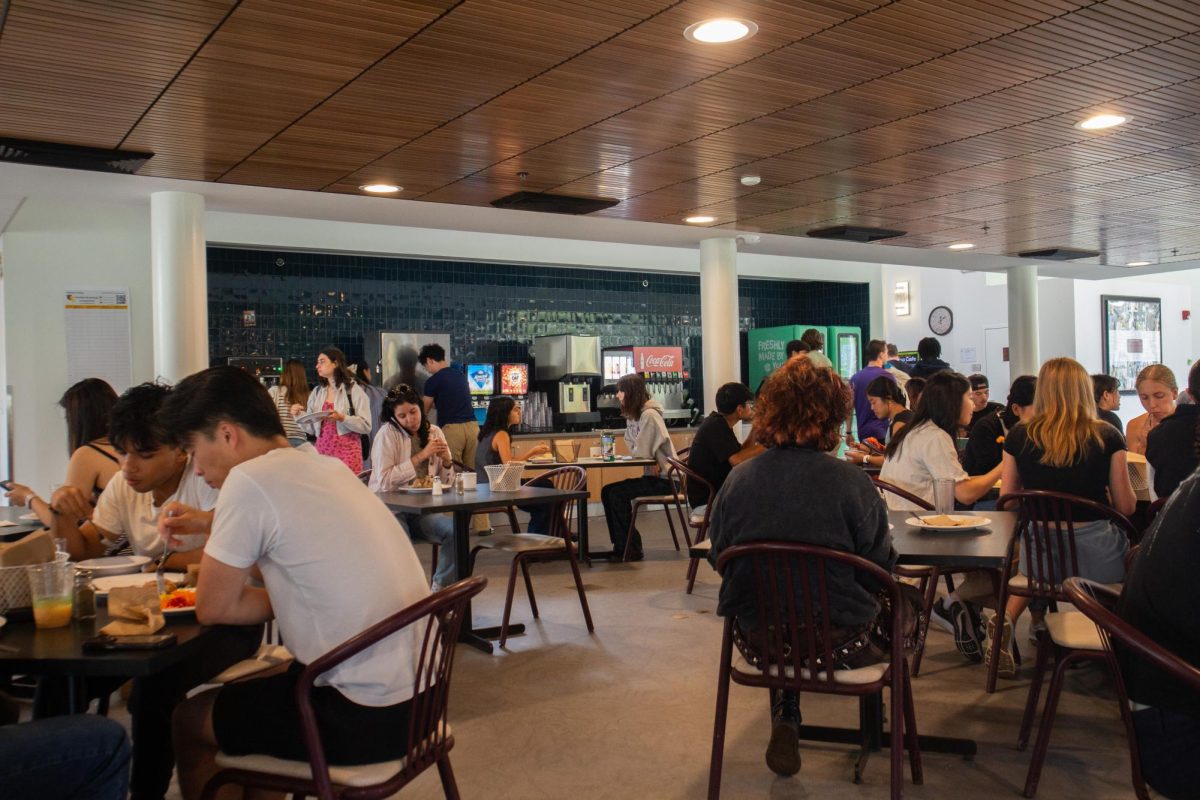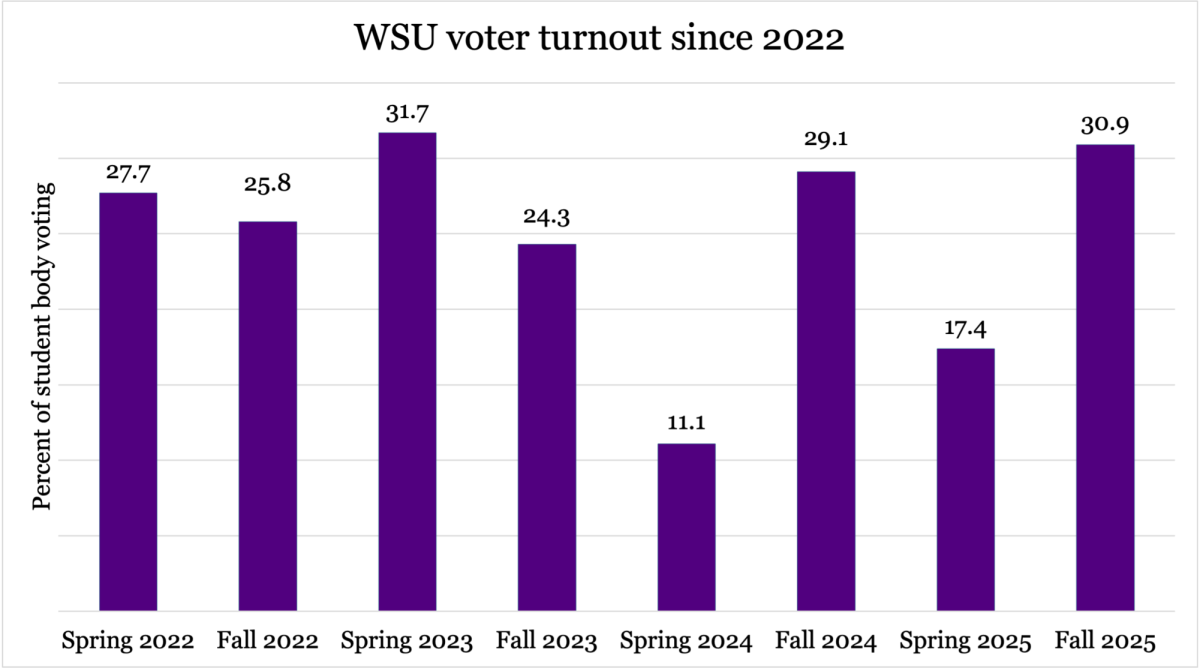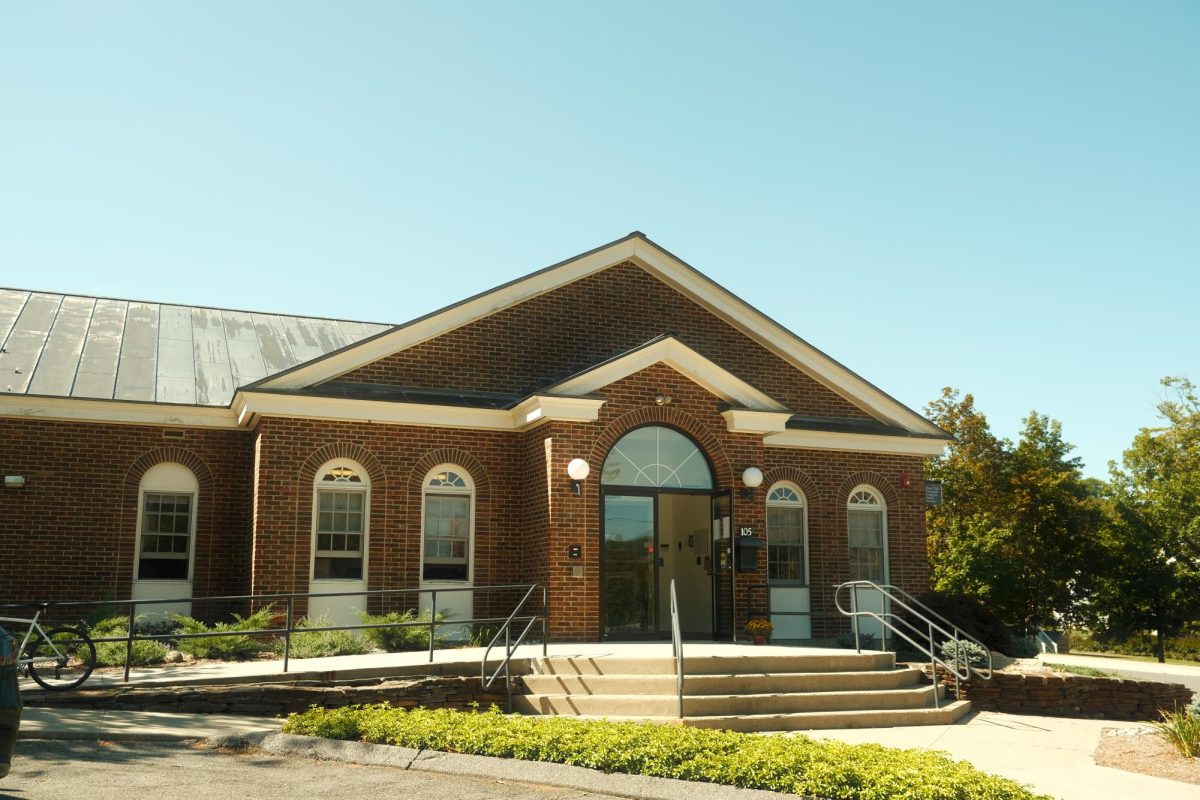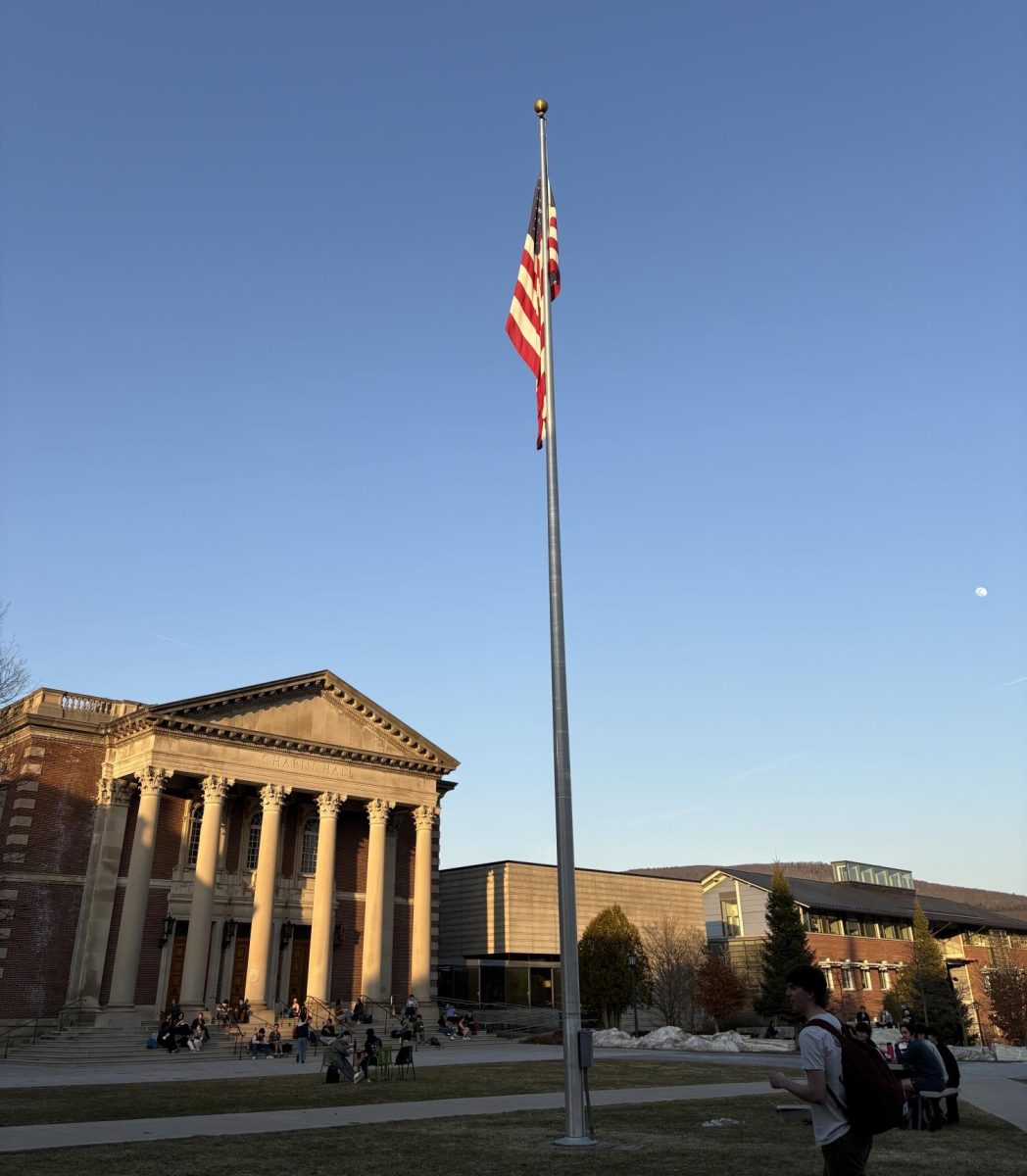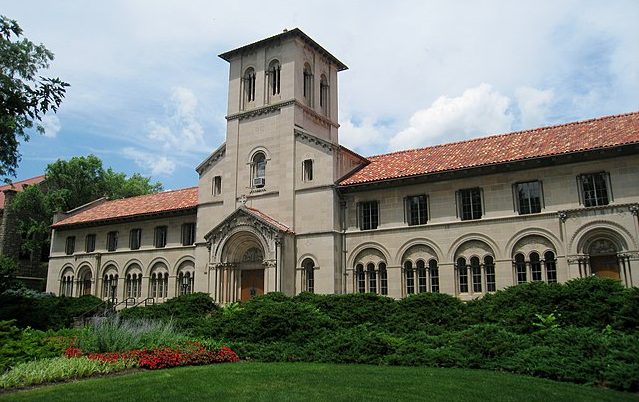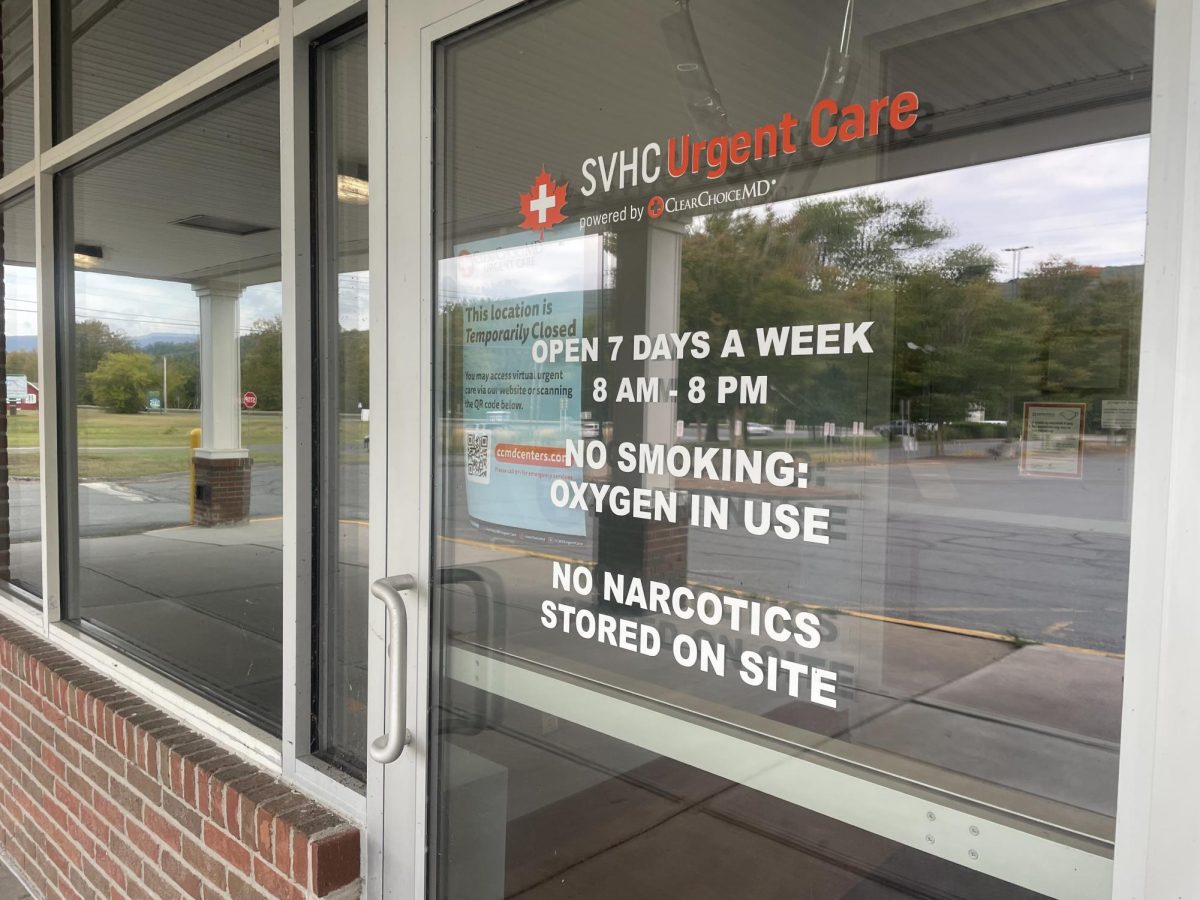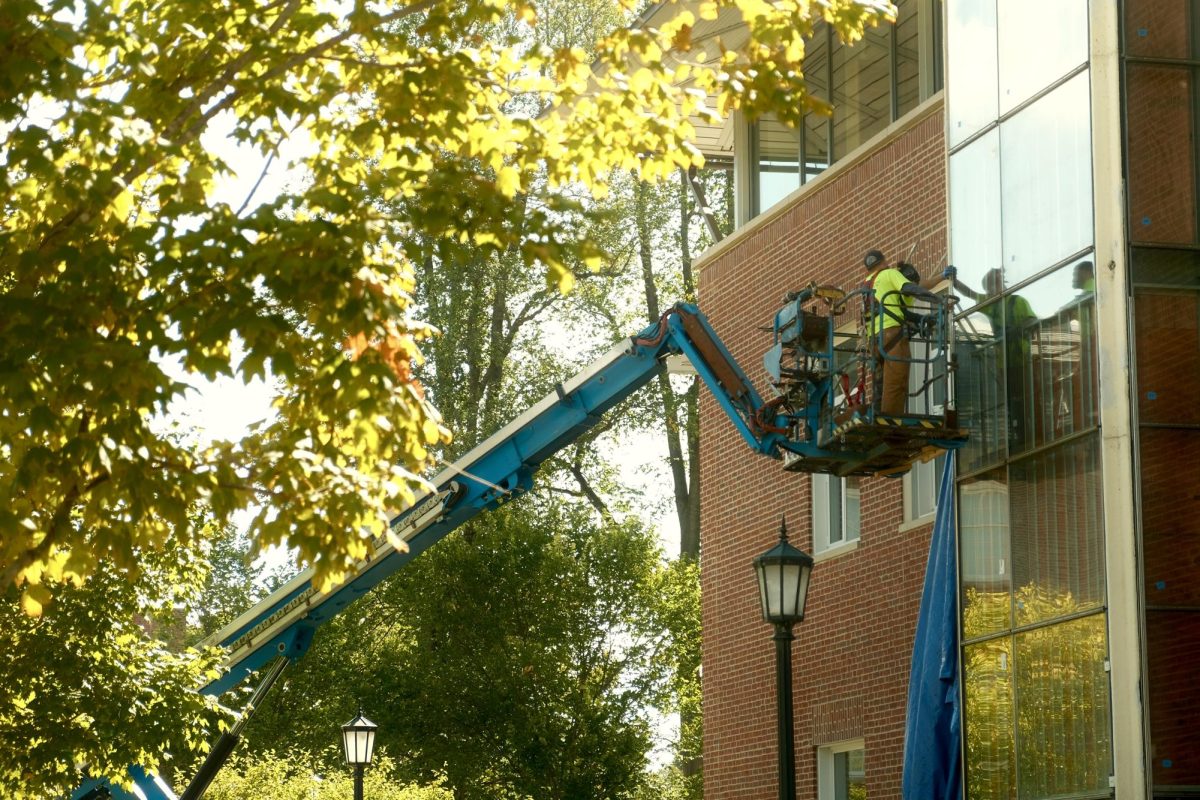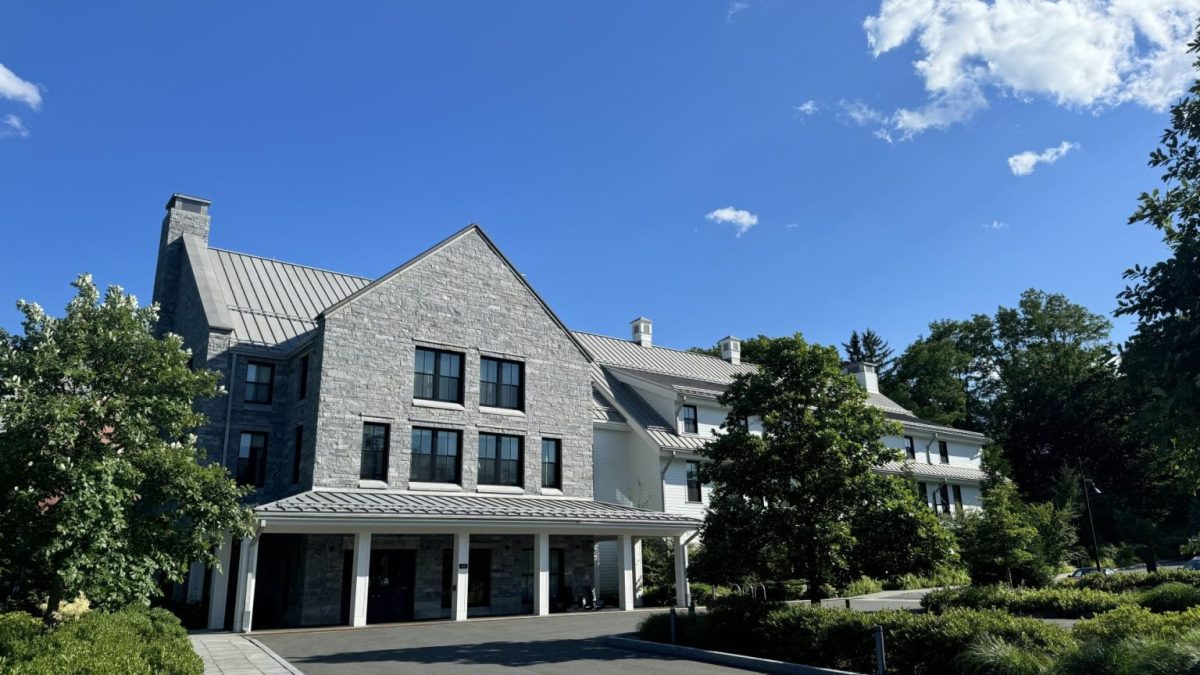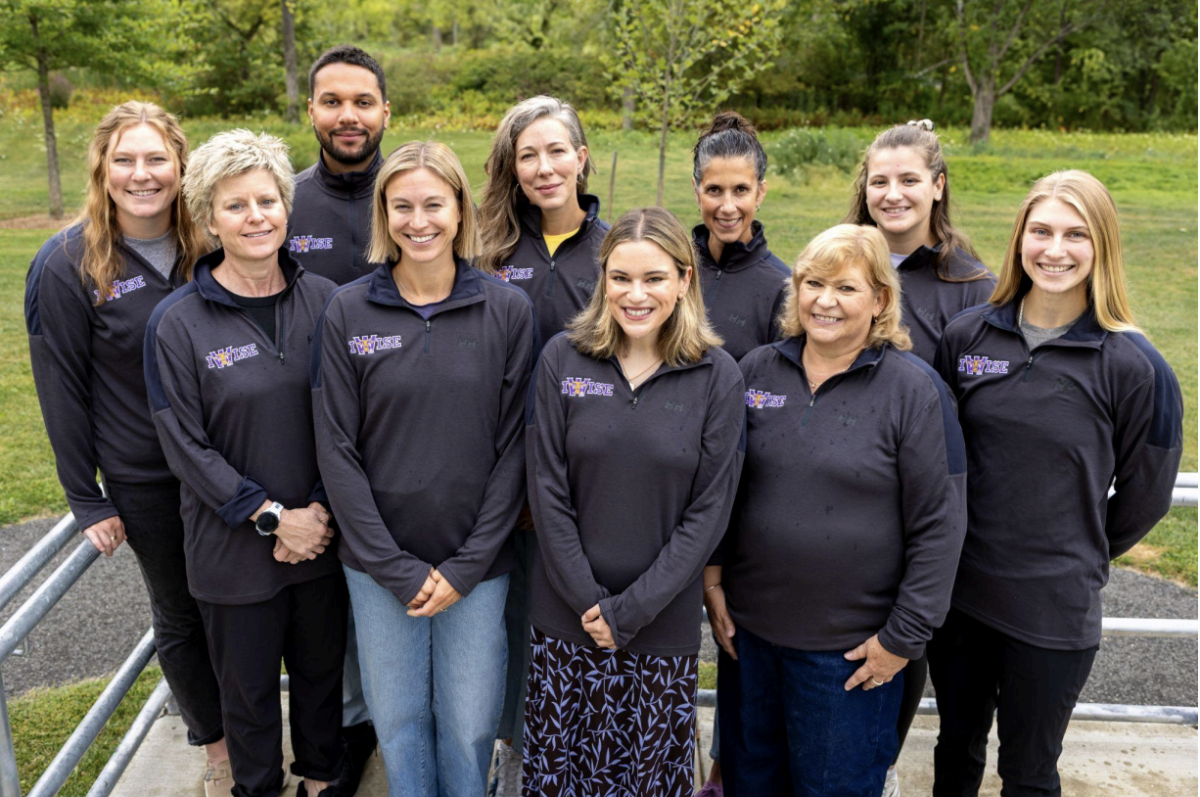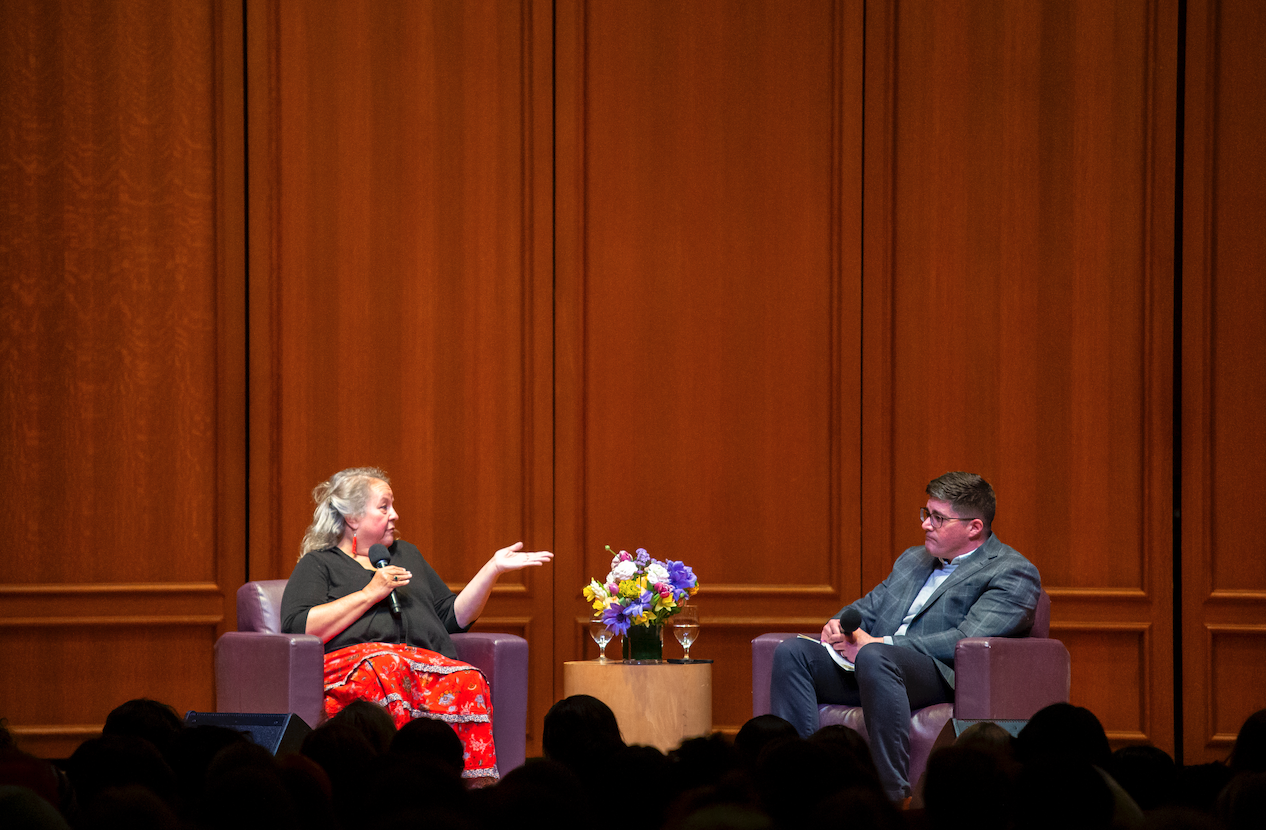
Robin Wall Kimmerer, a botanist, professor, and author of this year’s Williams Reads book Braiding Sweetgrass, delivered the evening keynote address at Claiming Williams Day on Feb. 6. The morning keynote featured Ben Spencer, who was wrongly convicted of murder and imprisoned for 34 years, and Barbara Bradley Hagerty ’81, a journalist whose reporting helped uncover evidence that exonerated Spencer.
Kimmerer challenges educational norms as students push for Indigenous studies department
During the evening keynote, Kimmerer spoke with Professor of Geosciences and Associate Dean for Institutional Diversity, Equity, and Inclusion José Constantine about Indigenous knowledge, assimilation in Western education, and building reciprocal relationships with the environment.
Kimmerer expanded on this year’s Claiming Williams Day theme of “Braiding our Interconnected Futures” by discussing her experiences intertwining belief systems and identities. After growing up in upstate New York, Kimmerer attended SUNY College of Environmental Studies and Forestry (ESF) in Syracuse, N.Y., and later earned a master’s and doctorate in botany from the University of Wisconsin-Madison.
In her talk, Kimmerer said that she considers her Indigenous knowledge to be as valuable as her academic achievements, recounting how elders at a gathering in her community teased her for thinking that her doctorate in botany meant that she had sufficient knowledge of plants. “I knew enough to know that I don’t know anything, compared to the cultural knowledge holders that were sitting around that fire,” she said. “When all of the teasing was through, one of the elders said, ‘An educated person is somebody who knows what their gifts are and how to give them to the world.’”
Kimmerer, who is now a professor at SUNY ESF, said she believes that institutions of higher education often fail to embrace Indigenous knowledge. “My experience is that higher education continues to be highly assimilative … often in erasure of other ways of knowing, other epistemologies,” she said.
In order to resist the erasure of Indigenous knowledge within academia, Kimmerer said she tries to bridge academic and Indigenous knowledge, both in her own life and in the classroom. “I try to help my students navigate that space, to really be bilingual, and use both of those tools, of the Indigenous epistemology and Western epistemology, but know why you’re using them,” she said.
Kimmerer mentioned that SUNY ESF has several programs related to Native peoples and the environment “We only have a minor in Native Peoples and the Environment — I hope that you will have a major pretty soon,” she said of the College.
Daisy Rosalez ’25.5, the founder of the Native American Indigenous Students Alliance (NISA), said that she asked Kimmerer before the address if she would advocate for an Indigenous studies major at the College while on stage. Rosalez founded NISA in 2022. Prior to Kimmerer’s address, Rosalez hung posters accusing the College of ignoring Indigenous voices throughout Chapin Hall to be displayed during the event. Statements on the posters included “This land remembers Native blood” and “Do better Williams! Support Natives, support immigrants, stand against racism.” In an interview with the Record, Rosalez said she hopes that the posters brought attention to her group’s cause.
In the fall of 2024, Rosalez delivered a petition calling for the establishment of an Indigenous studies department with 158 signatures to President Maud S. Mandel, but said she has not received a formal response from the College.
In addition to the petition and posters, Rosalez made a poster for Annapurrna Xochisentli ’25 to hold as she delivered a land acknowledgment at the opening of the event, declaring that “Williams College needs an Indigenous studies department.”
“The stories buried in this land, where Williams College stands on, are of colonial violence, one that continues to shape daily life on campus,” Xochisentli read in her acknowledgment. “For that reason, acknowledgement alone is not enough… As students, we urge Williams to create an Indigenous studies department, so that we can hear the stories of this land.”
“Essentially, the posters were a cry for help and support from the audience because our voices seem to not be enough,” Rosalez said.
As the evening came to a close, Kimmerer offered words of hope and guidance to the audience. “Even the wounded world is feeding us, bringing us joy, and color, and birdsong,” she said. “But I think the joy comes from being willing to feel the grief.”
Spencer and Bradley Hagerty encourage students to lead with truth
Spencer and Bradley Hegarty discussed their efforts to overturn Spencer’s conviction in a conversation moderated by Professor of History and Chair of Global Studies Magnús Bernhardsson.
Spencer, who was wrongfully convicted for murder and sentencd to life in prison, told the story of his time in the justice system. He maintained his innocence for 34 years until he was released in 2021 and fully exonerated last August. During his time in prison, Spencer had multiple parole hearings, but was denied parole because he refused to express remorse for a crime he did not commit. Spencer said his religious faith guided him in his unwavering assertion of his innocence.
“I knew the truth, and in that, I had my freedom,” Spencer said in an interview with the Record. “I mean, I wasn’t physically free, but spiritually, I was free, and I knew that God was walking with me through this.”
Bradley Hagerty, who had experience covering the Department of Justice, took on Spencer’s story in 2017 as a writer for The Atlantic. She learned about Spencer from Jim McCloskey, founder of Centurion Ministries, an organization that works to free innocent prisoners.
Throughout her reporting Bradley Hagerty tracked down key witnesses from Spencer’s trial nearly 30 years prior. A witness who originally claimed to have seen Spencer at the scene of the crime admitted to Bradley Hagerty that he never saw the face of the man he believed to be Spencer. Bradley Hagerty also procured a signed affidavit from Spencer’s cellmate — who claimed that Spencer confessed to the crime — admitting that he had made the story up. The discoveries in Bradley Hagerty’s reporting and the work of a team of pro bono lawyers prompted the district attorney to reopen Spencer’s case and reevaluate the evidence, leading to his release in 2021.
“Five people went against the Texas criminal justice system and we won,” Bradley Hagerty said to the Record. “It took a long time, but that is the power of determination.”
Spencer’s wife was pregnant when he went to prison, and although the couple got divorced while he was incarcerated, they maintained a close friendship, frequently writing letters to each other. Since regaining his freedom, Spencer and his wife remarried, and he has been able to build a closer relationship with his son.
“When I walked out of prison, it was like those 34 years disappeared,” Spencer told the Record. “It’s like I woke up out of a coma or a nightmare and walked back into my life.”
Spencer now hopes to inspire others with his message of faith. Bradley Hagerty and Spencer said they intentionally visit law schools and colleges with high-achieving students to advocate the importance of truth and persistence. “I want young people who can actually make a difference, to fix the system, to see what’s wrong and to realize that they actually can do something,” Bradley Hagerty told the Record.
Bradley Hagerty said she thinks that the College’s liberal arts education equips students with the tools to achieve their goals. “Liberal arts frees you to actually follow your calling, and it gives you the discipline to actually achieve it,” she said. “I love this place, and it gave me my life — I wouldn’t be a writer without Williams.”
Spencer hopes that students at the College can learn from his life experience, and will go forth in life staying true to themselves.
“Too often we’re trying to please others, trying to develop this rapport with others that sometimes can lead us into a dark place,” he said. “What’s most important is that we follow who we are and who we’re supposed to be, not who other people say we should be.”



